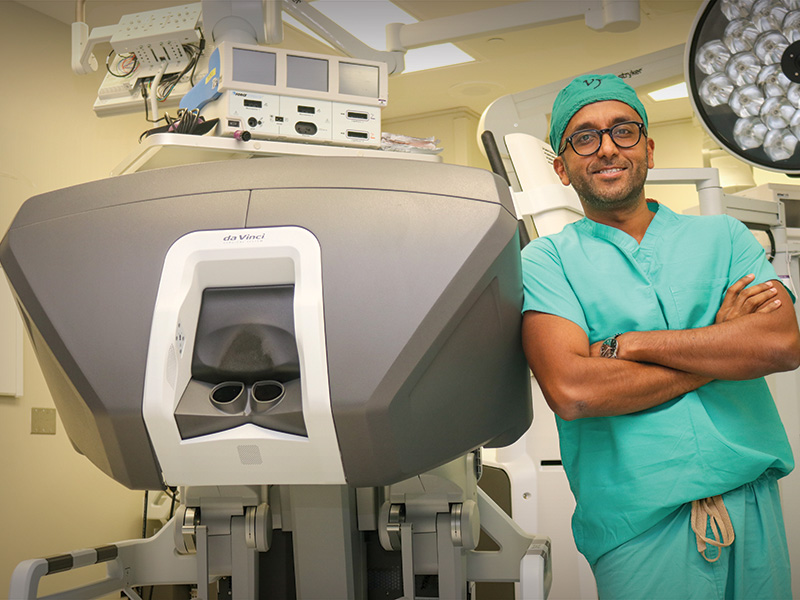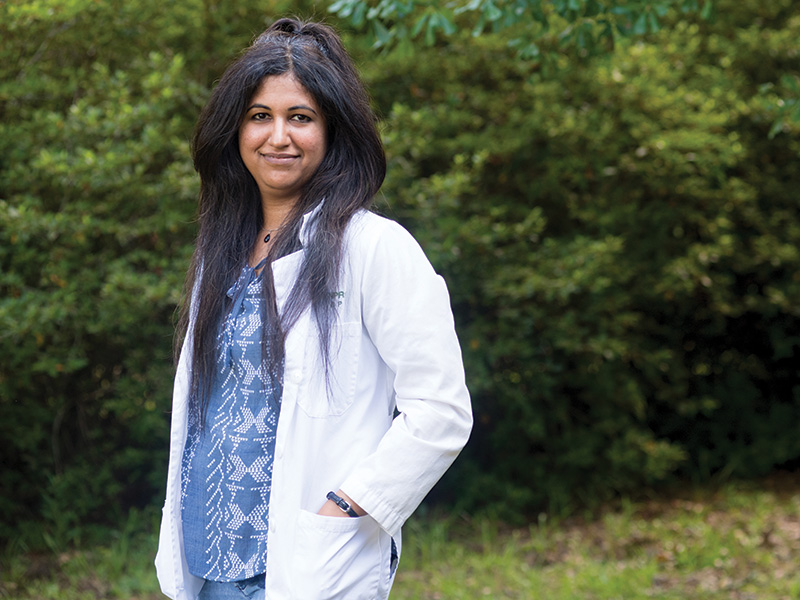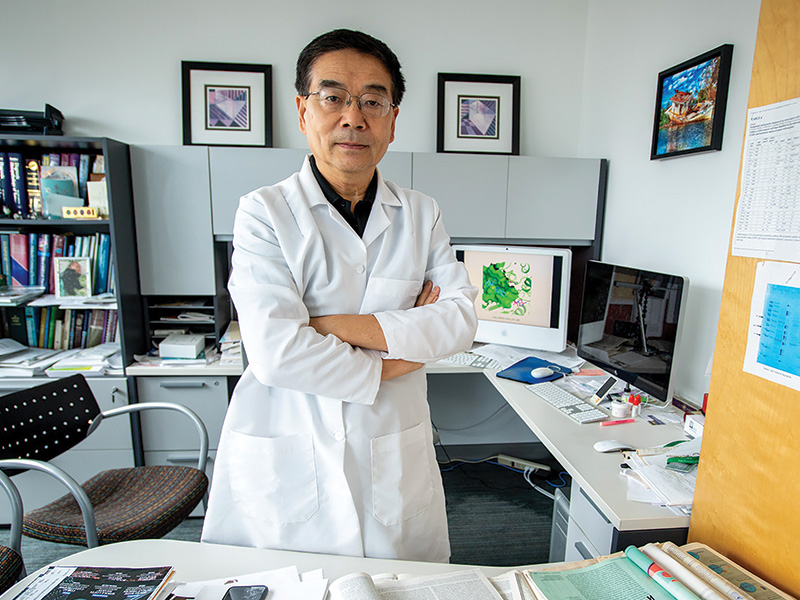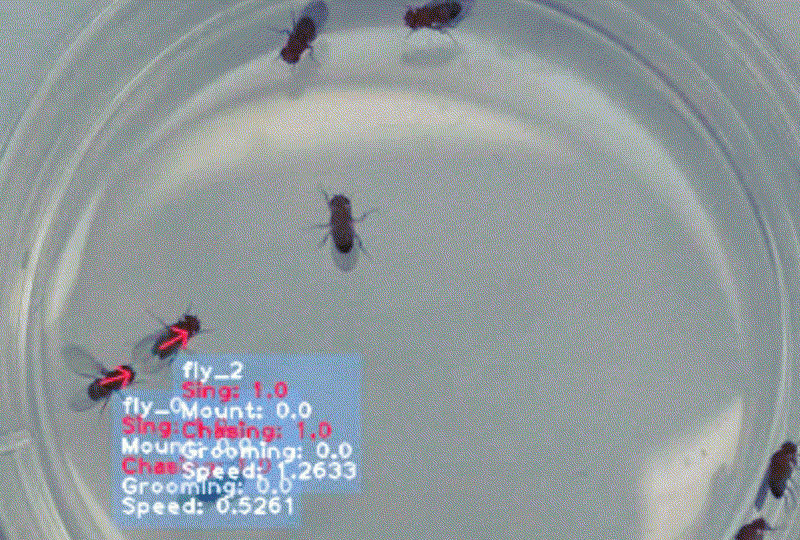Groundbreaking Research
Tulane has a history at the forefront of groundbreaking research. From our founding combating infectious disease, to finding innovative solutions to wetland erosion, environmental challenges and other global problems, Tulane has long been a hub of meaningful exploration and discovery. Tulanians are dedicated to tackling the toughest challenges.

Robotic Treatment for Pancreatic Cancer
Dr. Adarsh Vijay, assistant professor of surgery in the School of Medicine, has introduced a cutting-edge robotic Whipple procedure for treating pancreatic cancer. The Whipple procedure is a minimally invasive surgery that reduces blood loss and shortens hospital stays and recovery time compared to open surgery.

Long-term Lyme Disease
Tulane researchers identified a promising new approach to treating persistent neurological symptoms associated with Lyme disease. Geetha Parthasarathy, PhD, with the Tulane National Primate Research Center, discovered that a type of drug previously studied in the context of cancer can significantly reduce inflammation and cell death in brain and nerve tissue samples infected with the bacterium that causes Lyme disease.

Rapid Test for HIV and TB
HIV and tuberculosis commonly occur together, and Tulane researchers have developed a rapid test that can detect both diseases at the same time with just a small amount of blood. Tony Hu, PhD, Weatherhead Presidential Chair in Biotechnology Innovation, led the development of the test, which can also measure the viral and bacterial load in patients. Tests like this one are essential in developing countries where it can be difficult to get tests to those who need them.

Groundbreaking Cancer Prevention
Hua Lu, PhD, the Reynolds and Ryan Families Chair in Translational Cancer Research at the School of Medicine, published a study in Proceedings of the National Academy of Sciences that uncovered a previously unknown molecular pathway that could help to halt lung cancer in its tracks. The research could lead to the development of a new anti-cancer drug and more personalized lung cancer treatment.

Tracking Fly Behavior
A new system, dubbed MAFDA, uses AI to track the behavior of fruit flies to study behavioral genetics and could be useful in studying other animals or drug effects in humans and have broad applications in the fields of human behavioral evolution, metabolism and sex dimorphism. Cameras and newly developed software are used to track and identify complex interactive behaviors of individual flies within a larger group.

Diabetes Control with AI
Through funding from the National Institutes of Health, Lizheng Shi, PhD, Endowed Regents Professor in the School of Public Health and Tropical Medicine, developed an AI-based risk model to help clinicians personalize treatment goals for patients with type 2 diabetes. Dr. Vivian Fonseca, section chief of endocrinology at the School of Medicine, is co-principal investigator for the grant.

Mental Health Research
School of Social Work faculty members Tonya Cross Hansel, PhD; Leia Y. Saltzman, PhD; and Pamela A. Melton, DSW, authored a study in the American Journal of Public Health that examines how numerous health care workers leave the field prior to retirement due to excessive exhaustion from prolonged work-related stress. The study finds that addressing this concern requires an ecological systems mindset, considering stressors across workers' personal lives and factors at the agency and administrative levels.
